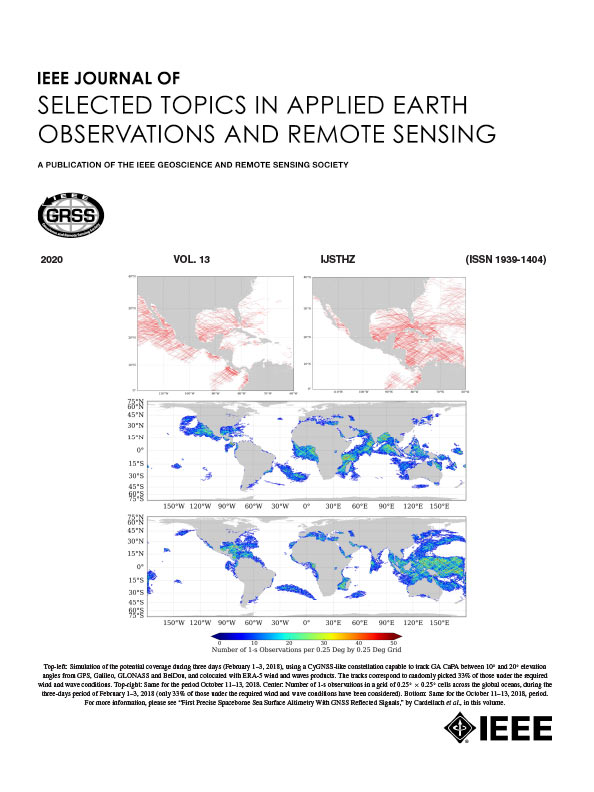Uncertainties of Urban Heat Island Estimation With Diverse Reference Delineation Methods Based on Urban–Rural Division and Local Climate Zone
IF 5.3
2区 地球科学
Q1 ENGINEERING, ELECTRICAL & ELECTRONIC
IEEE Journal of Selected Topics in Applied Earth Observations and Remote Sensing
Pub Date : 2024-10-03
DOI:10.1109/JSTARS.2024.3472475
引用次数: 0
Abstract
The precise quantification of surface urban heat island intensity (SUHII) is fundamental for understanding the process, causes, and solutions to thermal environmental change. However, the existing methods for SUHII estimation are not uniform in nonurban reference selection, with inconsistent consideration of relevant influencing factors. The associated uncertainty can be further exacerbated under seasonal fluctuations of atmospheric and surface environments. This study concentrated on macrocity and intraurban local scales to examine the variations in SUHII assessment and its seasonal changes using different reference delineation methods. City-scale analysis included eight references based on the fixed areas or dynamic buffers, while local-scale analysis took six natural cover types as references under the local climate zone (LCZ) framework, respectively. Results revealed significant differences in SUHII using diverse references, and the inconsistency varied across seasons. On the city scale, the most pronounced intermethod difference occurred in winter, while stronger consistency of spatial patterns was observed in summer. Relatively, higher seasonal SUHIIs and stronger spatial variabilities were generated by methods using fixed areas. On the local scale, a strong consistency of spatial patterns was also observed in summer, while the most pronounced difference occurred in spring. Maximum local SUHIIs in all seasons were obtained using LCZ G as a reference. The study further summarized a list of criteria of reference selection for both scales. Overall, this study provides empirical evidence supporting the appropriate reference delineation for reliable SUHII estimate, especially for seasonal analysis. It can facilitate an improved understanding of urban thermal variations and benefit effective urban heat mitigation.基于城乡划分和当地气候带的不同参考划分方法下城市热岛估算的不确定性
精确量化城市地表热岛强度(SUHII)对于了解热环境变化的过程、原因和解决方案至关重要。然而,现有的 SUHII 估算方法在非城市参照物的选择上并不统一,对相关影响因素的考虑也不一致。在大气和地表环境季节性波动的情况下,相关的不确定性会进一步加剧。本研究主要针对宏观城市和城市内部的局部尺度,利用不同的参照物划分方法,研究 SUHII 评估的差异及其季节性变化。城市尺度分析包括以固定区域或动态缓冲区为基础的八种参照物,而地方尺度分析则分别以地方气候区(LCZ)框架下的六种自然植被类型为参照物。结果表明,采用不同参照物时,SUHII 存在明显差异,并且在不同季节的不一致性也各不相同。在城市尺度上,冬季的方法间差异最为明显,而夏季的空间模式一致性更强。相对而言,使用固定区域的方法产生的季节性 SUHII 值更高,空间变异性更大。在局部尺度上,夏季也观察到了较强的空间模式一致性,而最明显的差异出现在春季。以 LCZ G 为参照,获得了所有季节的最大局部 SUHII。研究进一步总结了两个尺度的参照物选择标准清单。总之,本研究为可靠估算 SUHII(尤其是季节分析)提供了经验证据,支持适当的参照区划定。这有助于加深对城市热变化的理解,并有利于有效减缓城市热量。
本文章由计算机程序翻译,如有差异,请以英文原文为准。
求助全文
约1分钟内获得全文
求助全文
来源期刊
CiteScore
9.30
自引率
10.90%
发文量
563
审稿时长
4.7 months
期刊介绍:
The IEEE Journal of Selected Topics in Applied Earth Observations and Remote Sensing addresses the growing field of applications in Earth observations and remote sensing, and also provides a venue for the rapidly expanding special issues that are being sponsored by the IEEE Geosciences and Remote Sensing Society. The journal draws upon the experience of the highly successful “IEEE Transactions on Geoscience and Remote Sensing” and provide a complementary medium for the wide range of topics in applied earth observations. The ‘Applications’ areas encompasses the societal benefit areas of the Global Earth Observations Systems of Systems (GEOSS) program. Through deliberations over two years, ministers from 50 countries agreed to identify nine areas where Earth observation could positively impact the quality of life and health of their respective countries. Some of these are areas not traditionally addressed in the IEEE context. These include biodiversity, health and climate. Yet it is the skill sets of IEEE members, in areas such as observations, communications, computers, signal processing, standards and ocean engineering, that form the technical underpinnings of GEOSS. Thus, the Journal attracts a broad range of interests that serves both present members in new ways and expands the IEEE visibility into new areas.

 求助内容:
求助内容: 应助结果提醒方式:
应助结果提醒方式:


